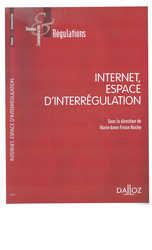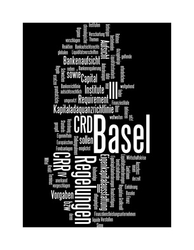Sectors

June 16, 2016
Breaking news
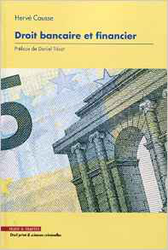
Professor Hervé Causse released a book of over 800 pages: Droit bancaire et financier (Banking and Financial Law).
Typically, there are "Banking Law" on one side and "Financial Law" on the other, each giving rise to separate books, Banking Law having long since detached from the Commercial Law and do having never really left Civil Law, Financial Law being more subject recently of books.
Typically, there are the "Banking Law" on one side and the "Financial Law" on the other, each giving rise to separate books, banking, having long since detached from the Commercial Law and do having never really left the Civil Law, financial law being more subject recently of books.
In the books of "Banking Law", we find the contracts, transactions (credit), mechanisms (like money), institutions (such as the National Central Bank) and sometimes specific repressive rules.
In the books of "financial law", first of all, we meet financial market, financial transactions (like all securities transactions or takeovers bids), the economy is much more present, the US Law being at home because of extraterritoriality as either model, repressive rules slipping everywhere, to the heart of what appears to be today a branch of law.
The important work of Hervé Causse goes further and corresponds to reality: it merges the Banking and Financial Law.
He does it because his work is based on the life of the sector, that is to say the professionals. In fact, professionals work in banks. Then he describes those who admit and control their activities, that is to say the authorities of supervision and regulation. He goes on to describe to the reader the instruments, financial prowess that the bankers invent.
Thus sucked by financial reality, what is left of the civil commitment of Banking Law? To take just one example, when the author discusses the concept of "banking service" from that of "financial service", he finds the uncertainty of this notions. The Banking Law is thus trying to forget the Civil Code, the “deposition” techniques being one example.
Thanks to the book of Hervé Causse, the reader understands that the rules now being written by those designing financial regulation, these rules must find their bones in the financial regulatory system.

June 14, 2016
Breaking news
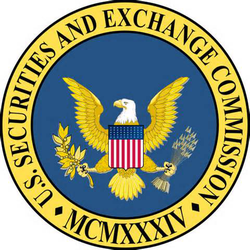
On 9 June, the SEC made an announcement on its website.
- The Regulator itself issued the amount of the award to a whistleblower for having providing it with information. Why is that? One would usually take a lower profile when awarding this much money ($17m) to an informer… Conversely, the Regulator immediately and publicly announced it in a press release, which pretty looked like a tender offer for further denunciations. It even included a link for everyone to access the whistleblower program—which is easily funded, since the awards are charged on the fines imposed on the convicted operators thanks to the information given.
- The reason for this is that information from whistleblowers is not merely indicative, nor a second-best option; it is central to Regulation, since it leads the Regulator to get information people within the system (i.e., insiders) deliberately chooses to ‘blow’ (in fact, not only do informers blow the whistle—they often immediately provide the Regulator with substantial information).
- The press release includes justifications for the Regulator’s behaviour, as the SEC openly considers that rewarding whistleblowers is the most efficient way for the Regulator to open or to resolve investigations. The Director of the SEC’s Division of Enforcement stated indeed that “company insiders are uniquely positioned to protect investors and blow the whistle on a company’s wrongdoing by providing key information to the SEC so we can investigate the full extent of the violations”.
- This highlights the ambivalence of insiders. Accordingly, they need to be ‘inside’ the system to be ‘knowledgeable’ and, consequently, obtain privileged information. On the one hand, should they use this information for themselves, then they would face prosecution for market abuse; on the other hand, however, if they use it to stir up the Regulator and shift its attention towards the whistle they’re blowing, then they may earn just as much money, if not more, than if they had behaved in a way that would have led them to prison.
The stage is thus set for the "business of virtue" to thrive.
June 6, 2016
Thesaurus : Doctrine

Complete reference : Causse, H., Droit bancaire et financier, Foreword of Daniel Tricot, coll. "Droit privé & sciences criminelles",Maré & Martin, France, Paris, 2015, 839 p.
Read the introduction written by Daniel Tricot;
Sept. 16, 2015
Events


May 20, 2015
Sectorial Analysis
April 8, 2015
Thesaurus : Doctrine
March 25, 2015
Breaking news

Read the Seminar program (14h - 19h30).
Its issue is the concept of "conflict of interest" by confronting the financial techniques of risk assessment and legal responses developed about it on the rating agencies, especially in 2009.
Speakers are Thomas Aam, Thierry Bonneau, Björn Fasterking, Markus Krall, Frédéric Lobez and Jean-Claude Werrebrouck.
Inscriptions : dherbaut@univ-lille2.fr
Information : marjorie.eeckhoudt@univ-lille1.fr
____
March 7, 2015
Bibliographic Reports : Books
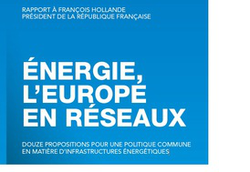
It is often argued that energy because it is a matter of sovereignty and because it is rooted in the territory, returns to the State. But it is resolutely towards Europe that Michel Derdevet pulls the whole system.
Probably by conviction, by will of a strong Europe and because there has economic power only when propped on energy. However, an energy system that is up by networks as in energy, we never doubted the convergence between the container and the content, meaning that the energy source is irrelevant whitout being carried, whitout being 'provided to users.
This construction of the networks is political and it is in terms of "mesh" that the report Michel Derdevet just submitted to the President of the Republic, François Hollande, presents a European project. In a way, it is not "revolutionary", as it is to finally fulfill the will of those who conceived Europe in 1945 through the coal, steel and energy, to a common Europe from which built the industry, not only for the reconstruction of Europe but for its economic dynamism and its common security policy.
In this, the European network of the transportation of electricity is essential. Yet it is to be done because the legislation of the European Union rather liberalized energy markets whitout building Europe of energy, leaving remaining national specificities. The result is what Michel Derdevet rightly called "inertia".
He therefore proposes the establishment of an "European industrial project." In this context, Michel Derdevet requires better definition of "model of norms and regulation", aiming in particular the structure of tariffs that include or not the R & D according to the Member States, claiming the alignment of the tasks of network operators and a price guarantee for users, which would facilitate investment. He stressed that national regulatory differences hinder the development of smart grids (and therefore the European market). Without a convergence of regulations, interoperability is not optimal, as it would allow Europe to be a major global player in energy.
Michel Derdevet therefore advocates regulation that goes to both a stronger European articulation, but at the same time which must be more "decentralized", for users to make better use of new uses of energy through the action of regulators they are close.
It is true that we are very far off ...
This is why the author asks what one favors "regulatory convergence". This is not only to harmonize rules but also to redirect them to detach the competitive prism to direct them to the long-term financing.
It is true that Europe's energy, without which a single industrial space can hardly be, can not actually do if the regulation does not resolutely takes over the principle of competition, competition remaining in the moment of exchange, while the Regulation is in the long term and what to take to designate as "industrial policy" which is nothing but a form of expression of the Political.
So what Michel Derdevet request, what ever that finally the arrival of a political Europe, the need for it finds its place in the global competition.
Feb. 21, 2015
Breaking news

There was a time when the key was in the rule. Today is essentially in the effectiveness of the rule. What the English and Americans call: Enforcement.
When operators are very powerful and regulators have little information, when the rule is complex, when situations are always changing and diverse, most of the regulatory art focuses on enforcement.
It shows a little more the continuum between Ex ante and ex post, moreover the circularity between them. Not only sanction is necessary ex post to the regulatory body for the rules that it asked ex ante have an effectiveness, but conversely, if we want that breaches the rule that powerful operators are committed could be sanctioned, it is through the Ex ante they must be punished.
Thus, when a financial operator wants to raise funds in the US financial market, he must request authorization from the Regulator to do so or at least to declare beforehand. It is therefore an Ex Ante mechanism. But if the operator is trustworthy, then it can be a kind of privilege that allows him to raise funds without submitting to the heavy and lengthy procedure. It takes but just whether trusted opérator.
However, Reuters reported the next development by the SEC guidelines for applying its power to withdraw the exemption to operators which had broken the law, civil or criminal.
While this may be explained by the fact that these operators have shown they don't deserve the confidence that justified access to the status of "well-known seasoned issuer" (WKSI) offering this "privilege" exempting regulation.
This is especially a new crackdown. The withdrawal of that relief proceedings valuable to the operator who regularly raises funds on the market, making him reach the common lot of borrowers, making carrying a disadvantage compared to operators who respect the law and shall remain holders of "bureaucratic privilege".
In a regulation in which repression becomes the central arrow in the quiver, here is an acute .
It begs the question: claiming that it is within the Ex Ante, can the regulator be dispensed to apply the rights of the defense?

Feb. 18, 2015
Sectorial Analysis
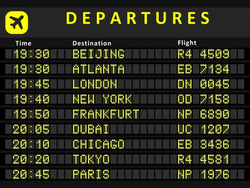
February 17, 2015, as the previous "Contrat de Régulation Économique" (Economie Regulatory Contract), the firm Aéroport de Paris (ADP) has made available on its site to all "for consultation" the draft "Contrat de Régulation Economique ("Economic Regulatory Contract) for the period 2016 -2020.
Published in the wake of the meeting of the Board of ADP, the text is presented as a tool "for the Paris place", especially for air transport.
This shows that the document is primarily intended for investors and financial markets, the document being placed on the company website in the section for the "investors".
This illustrates the evolution from the traditional "contrats de plan" (plan contracts). But then, who are the parties to these types of contract?
Indeed, the very term "Regulatory contract" is new in public Law. It appears as a sort of modernization of "plan contract." The Conseil d'État (French State Council) finally admitted the contractual nature of these planning contracts. In these contracts, are parties were the State and the company in charge of a public service.
Because here the contract is an instrument of "economic regulation" the open public consultation draft rather expresses a global conception of ADP, the company which manages the Paris airports, for the future of the development of critical infrastructure that is the airport as the heart of global development of air transport.
The enterprise manager of the airport in the heart of the contract (rather than the State) in setting objectives for the coming four years is the letter and spirit of the French law of 20 April 2005 about Airports, which put the apparatus of this "Contrat de Régulation Economique" in place.
In this, the infrastructure manager is set by law as a "regulator of second degree", as can be a financial market enterprise. The company that manages and develops the Paris airports undoubtedly belongs to the category of " critical firms", as well it manages the future of the sector and helps to keep France a place in the world.
More, A.D.P. behaves like a Regulator, since it is carrying out the "public consultation", the consultation paper prepared by it, being placed on its site and developing its ambitions for the sector and for France. But A.D.P. also expressed as a financial and economic actor, emphasizing the competitive environment, demanding in passing more stability and clarity in the regulation in which it moves ...
That is why the consultation mechanism provided by the law must be more complex. Indeed, ADP can not be judge and jury. Therefore if the project raises observations, they must be formuled not to ADP but to the Ministries of Aviation and Economy, within a month. They shall communicate theiir content to ADP . Then the Commission consultative aéroportaire (French Airport Consultative Committee) will be consulted. At the end of this process, the "Contrat de Régulation Economique" will be signed.
Seing the end of the process, it remains in line with the plan contracts, since it remains the Economic Regulatory Contract is signed between the State and the essential infrastructure manager. But the consultation process shows firstly investors are the first recipients of the statements made by a privatized company presenting its draft primarily in terms of competitive context and international development and secondly the airlines that use daily services of the airports are also directly involved by theses questions of tarification.
Airlines protest against the increase in the money that will be asked. This will be imposed, since it is tarification and princing public policy. We are in unilateral rules. But it is indeed a "price" they feel to pay, they also heard a speech referring to competition in what the mechanism is presented as a "contract".
But then, does it take to admit that these "contracts for economic regulation" are not between two parties that are the state and the regulator of second degree that is the infrastructure manager but must be three, the State, the infrastructure manager and "stakeholders" that are mainly airlines?
This practical difficulty is much to the fact that the qualification of "contract" is difficult to justify in proceeding in which prevail unilateral mechanisms.
Feb. 14, 2015
Sectorial Analysis
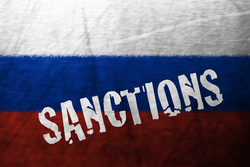
The repression is inseparable from how to repress. This is why the procedural difficulties are indicative of underlying fundamental problems. Currently, the basic issue updated by the battles around the procedures of financial sanctions is about the sanction bais.
For the regulator, the penalty is one tool among others to regulate financial markets. The penalty in a continuum with its legislative powers, are its teeth and claws through which financial markets are developing. The purpose of financial policy justifies an objective repression with a probationary system often based on presumptions leading to impute breaches players in some positions on or financial markets. The regulator must have this card in hand and use it according to this method.
Moreover, if it happens that people commit reprehensible misconducts, perceived as such by the social group, they should be punished, possibly up to the prison. Only the criminal justice is legitimate to do so legitimately weighed down by the burden of proving intentionality, etc.
We must distinguish these two types of criminality. It is from there that the two procedures and two probationary systems can take place at the same time but on different offenses.
For now this is not the case, as "financial misconduct" are only the carbon copy of "financial crimes" lightened loads of evidence that protected the defendant and who should answer for now twice.
Procedural problem? No, problem of criminalization, which won't be released by procedural solutions, the most hazardous being to create a new institution, the most calamitous being to weaken the system by removing one of the ways of prosecution. It is necessary to make distinctions in the offenses that are currently redundant.
Thus, repression as a regulatory tool used by the Regulator is in focus, but the real financial criminal law remains to be consolidated to achieve its own and classic goal: punish faults including through the prison.
Feb. 13, 2015
Breaking news

Read the conference presentation (this presentation is written in French).

Jan. 23, 2015
Breaking news

What does Regulating to operators? How do they feel? Do they internalize? Does it means to them, simply a cost or an impact on their strategy on the markets?
The question is all the more important that you adhere to the theory of incentives, whereas the adequate regulatory techniques are those that produce the desired behavior by regulated operators.
The issue is not whether the Regulating is included in spending. This is acquired. For example, in two years the banks move internal forces of certain services, such as credit, to the compliance department and regulation. The regulation may represent a very high share of costs: it lies in the fact that through compliance the regulatory system has internalized the costs of regulation in the firms.
But does it make to change the strategic choice of the operator on the market, not only increase the number internal processes?
To listen Lloyds Blankfein, chairman of Goldman Sachs in Davos, words immediately commented in the British press as considerations allayed regarding Regulation!footnote-22, we doubt it.
Mr. Blankfein Lloys who also sits on the board of the Harvard Law School, asked about the question of whether the bank doesn't suffer from the pressure of regulations and supervisors replied that must be considered especially in the very design of technical systems to meet compliance but that for him, Regulation isn't really an annoyance: it is a "background noise". He compares it to music: something that he listens a lot, but while he is doing its job. Something which remains outside.
This means that Regulation occupies its technical regulatory services but doesn't affect its own work of invest bank president.
We can rejoice, since it shows that Regulation doesn't impede free enterprise and the operator's choice. One might worry if Regulation should have an "educational" function wanting influence how the president himself decides. In this case, Regulation must cease to be a kind of expensive elevator music.
It is not sure that regulators and supervisors have the same understanding

Jan. 16, 2015
Breaking news
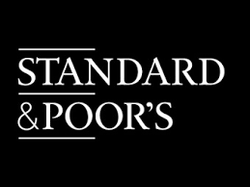
One can only be amazed or even upset.
First, the agreement is not yet concluded. It would be in a month or two. How is it that we already know? Secondly, contracts, because the transaction is a contract listed by the Civil Code, are not intended to be public. How is it that we already know everything? The person who gave the information "was keen to remain anonymous." It would have suspected ......
Third, it is true that the regulation of rating agencies is a big issue. Special texts have been taken but academics think the right tools stay missing and that is probably the liability, general legal instrument, which is the most appropriate.
But the responsibility of commitment requires a trial, evidence, respect for the rights of defense, due processs, legality of offenses and penalties.. Here, $ 1 billion is paid by the company only to avoid that opens a lawsuit against it. The allegation is the rating agency would have underestimated the subprime risk.
But on one hand everyone says that the rating agency has actually done the facts allegued since payroll so that the file doesn't open. On the other hand, and from the perspective of regulating the information that would be out of the trial, a trial being a form of crisis, will not come out.
So this sort of industry fof "Deals of Justice", apart from the fact that some describe the phenomenon as a "racket", isn't a "decriminalization" of regulation for a "civilized regulation" through the transaction contract. On the contrary, this movement that is spreading constitutes an increased repression whic diminishes rights of defense for the operator and information for the sector.
One can only be amazed or even upset.
Jan. 14, 2015
Breaking news


